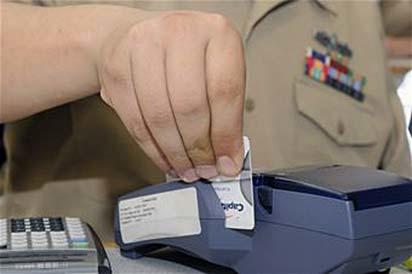Choosing a credit card is a very personal decision -- the card that's best for you might be very different from the best card for someone else. Avoid making a big mistake when choosing a credit card. Don't pick a card simply because it's the one your bank or credit union offers or because it comes with a super-low introductory rate or attractive rewards or because it showed up in your mailbox "pre-approved."
Before applying for a credit card, you need to figure out how you will use it. For example, a card that offers good rebates could actually cost you more by charging higher interest rates if you tend to carry a balance from month to month.
Take the following steps to pick the best credit card -- and manage your credit wisely.
- Figure out how you will use your credit card. You can use a card to build your credit history, carry a balance to pay for a big purchase over time or charge almost everything so you don't have to carry cash around.
- Build your credit history with a secured card. If you're looking for your first card or don't want to spend more than you can afford, consider a secured card. With these, you deposit money in the account and that becomes your credit line. All secured cards charge an annual fee, but it varies from lender to lender. Shop carefully to avoid high fees.
- Carry a balance on a regular credit card. If you plan to carry a monthly balance, then look for a card with the lowest interest rate. This would likely be a card that offers few perks. And don't be fooled by introductory or "teaser" rates. Know what the interest rate will be after the introductory period is over.
- Pay in full each month using a rewards/rebate card. If you plan to pay your balance in full each month, you might do better with a card that offers rebates or rewards, like airline miles or cash back, even if it charges a higher interest rate. If you pay your balance before the end of the grace period, you will not be charged interest. The key is to pay in full all the time.
- Shop around. Don't just sign up for the next credit card offer that comes in the mail. Go to your bank, credit union or other financial institutions. Ask about the credit card deals they offer. Then look online. There are many websites that compare credit card rates and offers.
- Get the highest credit limit you can. Just plan on not using it. A high credit limit -- and a low balance -- will give you a good credit-utilization ratio, which could bump up your credit score. Remember, this only works if you don't charge up to the max.
- Compare costs and features. Get details on the fees, interest rates and any rebate offers of the cards you are interested in. Figure out how easy it will be to earn cash back, mileage or other rewards.
Avoid cards with annual fees, unless you are earning very large rebates. If you choose to pay an annual fee, shop for the lowest fee possible. Otherwise, the fee could eat up your deposit for a secured card or any rewards you might receive with a reward card.
Look into penalty interest rates and late fees also. Find out what triggers penalty rates and how long you have to make payments before late fees kick in. - Use caution when considering a balance transfer. If you are carrying a large balance with a high interest rate, you might be able to lower your interest rate by transferring the balance to a new card with a lower rate. But be very careful. A super-low rate could only be temporary and you'd have to pay the balance off before it jumps up -- potentially above your original rate. Be clear about when the higher rate will apply and consider balance-transfer fees that could counteract any benefits.
- Manage your credit card use carefully. After you get a new card, remember the reasons why you chose it. Make the most of the benefits, but avoid landing in expensive debt. If you picked a card for its good rebates despite a high interest rate, don't charge more than you can actually pay comfortably. The interest could cost you more than the rebates you earn.
And even if you pick a card with a low rate, always pay at least the minimum by the due date to avoid any late fees or penalty interest rates, or any hits on your credit score. If you can pay more than the minimum required, so you'll spend still less money on interest. Also try to charge less than 25 percent of your credit limit, which can help your credit score and help you avoid having to pay over-limit fees.
In the market for a new home? See How to Shop for a Mortgage Action Plan to avoid letting another form of credit get you into trouble.











